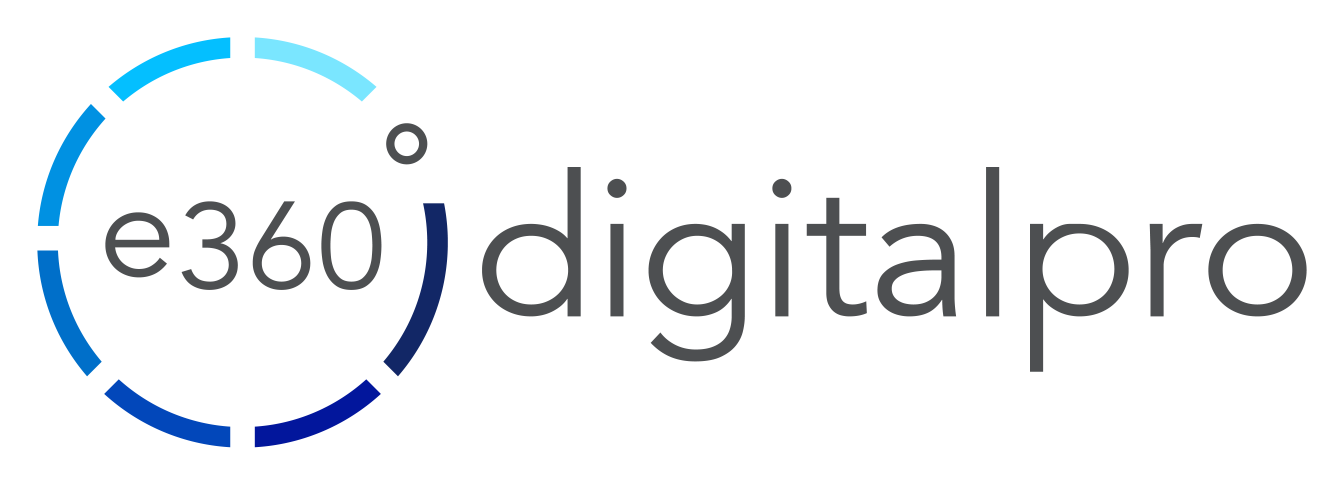New to SEO? Demystifying On-Page vs. Off-Page for Your Digital Success!
In the ever-evolving world of digital marketing, Search Engine Optimization (SEO) continues to be a driving force behind online success. SEO is a multifaceted strategy that encompasses a range of techniques to improve a website’s visibility and ranking on search engine results pages (SERPs).
Among the many facets of SEO, two crucial components stand out: On-Page SEO and Off-Page SEO. In this blog post, we’ll focus on On-Page SEO, providing a fundamental overview, delving into its role and significance, and exploring some of the common On-Page SEO elements that are essential for optimizing your website!
On-Page SEO: A Fundamental Overview

On-page SEO, often referred to as “on-site SEO,” is the art and science of optimizing the elements on your website to enhance its visibility and relevance to search engines. It’s everything you do directly on your web pages to make them more attractive to search engines like Google, Bing, and Yahoo.
The key principle behind On-Page SEO is to ensure that your website delivers an exceptional user experience and offers valuable, high-quality content that matches the intent of the users’ search queries. This, in turn, helps search engines understand your content and rank it appropriately in search results.
The Role of On-Page SEO

On-page SEO plays a pivotal role in determining how search engines perceive and rank your website. It is the foundation upon which your entire SEO strategy is built. Here’s how On-Page SEO contributes to your website’s success:
1. Relevance
On-page SEO ensures that your content is highly relevant to your target keywords and audience. It helps search engines understand the subject matter of your web pages, making it more likely for your site to appear in relevant search results.
2. User Experience
Creating a user-friendly website with fast loading times, easy navigation, and mobile responsiveness is a core aspect of On-Page SEO. A positive user experience not only pleases visitors but also pleases search engines, leading to better rankings.
3. Content Optimization
On-page SEO involves optimizing your content by strategically using keywords, headings, and meta tags. This ensures your content is both readable by search engines and engaging for human readers.
4. Technical Factors
Managing technical aspects like meta descriptions, alt tags for images, and schema markup helps search engines understand the context of your content and present it more effectively in SERPs.
Why On-Page SEO Matters?

On-page SEO isn’t just a fancy buzzword; it’s an essential aspect of your digital marketing strategy that can’t be ignored. Here’s why it matters:
1. Improved Visibility
Properly executed On-Page SEO increases your chances of appearing at the top of search results, making your website more visible to potential visitors.
2. Better User Experience
A well-optimized site is user-friendly, ensuring a positive experience for your audience, which can lead to increased engagement and conversions.
3. Enhanced Credibility
When your website consistently provides relevant and valuable information, search engines recognize it as a credible source, improving your reputation in your niche.
4. Competitive Advantage
Your competitors are likely investing in On-Page SEO, so staying ahead in this game is crucial to maintaining or gaining an edge in your industry.
Common On-Page SEO Elements

According to WooRank:
“On-page SEO is everything you do to your own website in order to improve its position in search engine results. When you think of most of the “basic” parts of search engine optimization – things like keywords, HTML tags, page titles, and mobile friendliness – you’re thinking of on-page SEO”.
To achieve On-Page SEO success, you need to pay attention to various elements. Here are some of the most common ones:
Keyword Optimization
Strategically place relevant keywords in your content, titles, and meta tags to signal the topic of your page to search engines.
Quality Content
Creating high-quality, informative, and engaging content that meets the needs of your target audience.
Meta Tags
Crafting compelling meta titles and descriptions that encourage clicks from search results.
Header Tags
Use proper header tags (H1, H2, H3, etc.) to structure your content and make it more readable for both users and search engines.
As of Digital Third Coast:
“Headings are usually the largest words on the page, and for that reason, search engines give them a little more weight than your other page copy. It is a good idea to work your target keywords into the headings of each web page but make sure you accurately reflect your page’s great content”.
Image Optimization
Optimizing images by using descriptive file names and alt tags to help search engines understand the content of your visuals.
Off-Page SEO: Beyond Your Website

While On-Page SEO focuses on optimizing the elements within your website itself, Off-Page SEO ventures into the vast digital landscape beyond your website’s borders. It’s like the network of connections and endorsements that a knight receives on their quest to become a legendary hero. Off-page SEO is all about building your website’s reputation and authority across the web through external sources, earning the trust and admiration of search engines like Google.
To learn more about Web Development, visit our blog and master the skill.
Understanding Off-Page SEO

Off-page SEO is the art of building your website’s reputation and relevance through various external methods. This involves actions taken outside of your website, including link building, social media engagement, content marketing, and influencer outreach. It’s akin to the journey of our hero, who seeks alliances, allies, and accolades from far and wide.
But what exactly does Off-Page SEO entail? Here are some of the key components:
1. Link Building
Link building is like receiving the blessing of the kingdom’s elite knights. When other websites link to your content, it’s a vote of confidence in your website’s authority and trustworthiness. High-quality backlinks from reputable sources can significantly boost your rankings.
According to ZebraTechies:
“Only page optimization cannot place you at the top, off page SEO is also necessary. Whenever you find a top search result, analyze that and there will be many backlinks that place it at the top”.
2. Social Signals
Your presence on social media platforms matters. The more engagement, shares, and likes your content receives, the stronger your Off-Page SEO becomes. It’s like the cheering crowd along our hero’s journey, validating their prowess.
3. Content Marketing
Creating valuable, shareable content is key to Off-Page SEO success. When your content gets shared across the web, it establishes your website as a valuable resource. It’s like the tales of our hero’s bravery being sung by bards in every corner of the land.
4. Influencer Outreach
Collaborating with industry influencers can be a game-changer. When influencers endorse your content or link to your website, their authority rubs off on your brand, catapulting your reputation to new heights. It’s akin to receiving blessings from the wise elders of the kingdom.
Off-Page SEO’s Impact on Rankings

Now, let’s unravel the enigma of Off-Page SEO’s impact on your website’s rankings. Think of your website as a castle. On-page SEO fortifies the castle’s walls and interior, making it resilient and welcoming. But Off-Page SEO is what surrounds your castle with a thriving kingdom, complete with loyal subjects, allies, and trade partners. Here’s how Off-Page SEO affects your rankings:
Authority and Trust
By acquiring high-quality backlinks and endorsements from authoritative sources, your website gains credibility in the eyes of search engines. This, in turn, elevates your search engine ranking.
Increased Visibility
Social media shares and content marketing amplify your website’s presence. The more people talk about your brand, the more likely you are to appear in search results, exposing your website to a broader audience.
Improved User Experience
Off-page SEO indirectly enhances user experience by driving more traffic to your site. This can lead to increased engagement, reduced bounce rates, and ultimately better rankings.
Competitive Edge
Outranking your competitors requires not only a well-optimized website but also a stronger Off-Page SEO strategy. The more authoritative sources vouch for your website, the more you distance yourself from the competition.
Exploring External Ranking Factors
External ranking factors in Off-Page SEO are the secret keys to unlocking the digital kingdom. These factors are like the mystical artifacts that our hero collects throughout their journey, each one enhancing their power and influence. Here are some crucial external ranking factors to consider:
1. Backlink Quality
The quality of the websites linking to your content matters more than quantity. High-authority websites carry more weight and positively impact your rankings.
As Ahrefs stated:
“Backlinks are one of the most important ranking factors (more on this later). You can earn them organically, and you can also “build” them”.
2. Anchor Text
The text used in the links pointing to your site can provide context and relevance. Optimizing anchor text can boost your rankings.
3. Social Signals
Pay attention to social signals such as likes, shares, and comments. The more positive engagement your content receives, the more it influences your rankings.
4. Content Quality
Well-crafted, valuable content attracts links and shares. Ensure your content is top-notch to gain the favor of both users and search engines.
The Importance of Balancing On-Page and Off-Page SEO
When it comes to SEO, it’s important to recognize that On-Page and Off-Page SEO are two sides of the same coin. Each plays a unique role in enhancing your website’s overall performance in search engine rankings. Balancing these elements is like fine-tuning a musical instrument; it’s the harmonious blend of both that creates the perfect melody for online success.
Key Differences Between On-Page and Off-Page SEO

Let’s find out the key differences between On-page and Off-page SEO.
On-page SEO focuses on optimizing various elements within your website itself. This includes content, HTML source code, and other on-site factors. Key aspects of On-Page SEO include:
Quality Content
Content is king in the online world. Creating valuable, engaging, and relevant content is essential for both users and search engines.
Keyword Optimization
Identifying and strategically placing keywords throughout your content to improve its visibility in search results.
Meta Tags
Crafting compelling Meta titles and descriptions to entice users and improve click-through rates.
As of Medium:
“Crafting compelling meta titles and descriptions to entice users to click on your links in search results”.
User Experience (UX)
Ensuring your website is user-friendly, with fast loading times, mobile responsiveness, and easy navigation.
Internal Linking
Connecting related pages within your website to enhance the user’s journey and distribute link authority.
Let’s move onto Off-page SEO now!
Off-page SEO, on the other hand, is all about what others say about your website and how authoritative it is in the online world. Key aspects of Off-Page SEO include:
Backlinks
Earning high-quality backlinks from reputable websites to demonstrate your website’s credibility to search engines.
Brand Mentions
Encouraging mentions of your brand, products, or services across the web to establish authority and credibility.
Balancing On-Page and Off-Page SEO is crucial because search engines like Google use a combination of these factors to determine your website’s rank. Neglecting one in favor of the other can lead to an incomplete SEO strategy.
On-Page SEO Techniques: What You Need to Know

Now that we’ve delved into the importance of On-Page SEO, let’s explore some essential techniques you need to know to optimize your website effectively:
1. Content is Key
Your website’s content should be informative, engaging, and relevant to your target audience. Conduct keyword research to understand what your audience is searching for and create content that addresses their needs.
2. Optimize Your Meta Tags
Craft attention-grabbing Meta titles and descriptions that incorporate your target keywords while providing a clear, concise preview of your page’s content.
3. Mobile Optimization
In the mobile-driven era, ensure your website is mobile-responsive to cater to a broader audience and maintain your search engine rankings.
4. Page Loading Speed
A slow website can deter users and harm your SEO efforts. Optimize your images, reduce unnecessary scripts, and invest in a reliable hosting service to improve loading times.
5. Internal Linking
Strategically link related pages on your website to guide users through your content and improve search engine crawling.
By mastering these On-Page SEO techniques, you’ll lay a solid foundation for your website’s success in the digital world. Remember, SEO is a continuous process, and staying updated with industry trends and algorithm changes is essential for long-term success.
Mastering Off-Page SEO: The External Factors

Off-page SEO is like the external reputation of your website. It involves everything that happens beyond your website but still affects its search engine rankings. Mastering Off-Page SEO requires an understanding of these external factors:
Backlinks
High-quality backlinks from authoritative websites are the lifeblood of Off-Page SEO. They serve as votes of confidence for your site, signaling to search engines that your content is valuable.
Content Marketing
Crafting compelling content that resonates with your target audience and encourages sharing and engagement across the web is key to Off-Page SEO success.
To gain stepwise knowledge on the top marketing trends to crush it online, visit our blog and master it.
According to ThriveAgency:
“Content marketing is the strategic process of creating, distributing and publishing content that engages and delights your target audience. To achieve this, your content needs to be relevant, valuable and compelling. Other than link building, content marketing can also be part of your social media marketing and PR campaigns’’.
Social Media Engagement
Active participation on social platforms not only broadens your online presence but also builds your site’s credibility.
Online Reviews
Positive reviews and ratings can impact your SEO. They indicate to search engines that your business is trustworthy and reliable.
Measuring On-Page SEO Success

On-page SEO, on the other hand, is all about optimizing your website itself. It’s like the foundation of your SEO strategy, and mastering it is vital. Here’s how you can measure your On-Page SEO success:
Keyword Analysis
Regularly assess how your chosen keywords are performing. Are they driving organic traffic to your website? Are they helping you rank higher in search engine results pages (SERPs)?
Content Quality
Evaluate the quality of your on-page content. Is it engaging, informative, and valuable to your audience? Are you using relevant keywords naturally within your content?
Site Speed and Performance
Slow-loading websites can be a major turn-off for users and search engines. Tools like Google PageSpeed Insights can help you measure and improve your site’s speed.
Mobile Responsiveness
In an age where mobile browsing dominates, ensure that your website is mobile-friendly. Google gives preference to mobile-responsive sites in its ranking algorithms.
Tracking Off-Page SEO Progress

Measuring the impact of Off-Page SEO efforts is equally essential. To track your Off-Page SEO progress, consider the following:
Backlink Analysis
Use tools like Ahrefs or Moz to monitor the growth and quality of your backlink profile. Are you gaining valuable backlinks from reputable sources?
Social Signals
Keep an eye on social media metrics, such as likes, shares, and comments. Are your posts gaining traction and engagement?
Online Reputation Management
Regularly check online reviews and ratings for your business. Are they becoming more positive over time?
Content Reach
Track the reach and engagement of your content on external platforms. Is your content being shared and referenced by other websites?
The Crux of it All
In the end, SEO is a dynamic field, and the balance between On-Page and Off-Page elements may shift over time as search engine algorithms and user behavior evolve. It’s essential to keep a finger on the pulse of the SEO industry, adapt to changes, and continue refining your strategies.
In conclusion, the debate between On-Page and Off-Page SEO isn’t about choosing one over the other. Both are essential pieces of the puzzle, working in tandem to boost your online visibility and reach. On-Page SEO ensures your website is in top shape, while Off-Page SEO extends your influence across the web. To succeed in the world of SEO, you need both. So, embrace the synergy between them and craft a winning strategy that takes your digital presence to new heights. Happy optimizing!
Read More
The Metaverse Needs You: How to Build a Thriving Career in This New World?
Are You New to Website Development? Here Are 5 Golden Rules to Master It
Learn From Our Experience! Top 6 Things to Avoid While Starting a Business on Amazon

Welcome to e360DigitalPro, where the ordinary becomes extraordinary. As a full-service digital agency, we specialize in turning ideas into digital masterpieces. From captivating designs that breathe life into your brand to data-driven strategies that deliver exceptional results, our team of experts is here to the rescue. Prepare to be amazed as e360DigitalPro takes your brand to new dimensions




